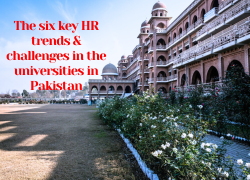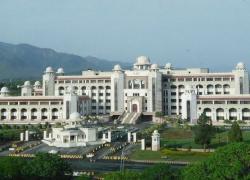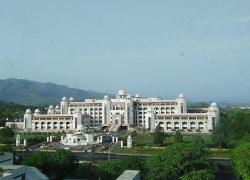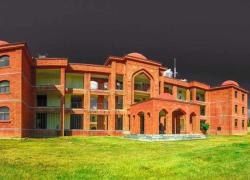University of Agriculture, Peshawar, Pakistan
The University of Agriculture, Peshawar (UAP), located in the historic and culturally rich city of Peshawar in Khyber Pakhtunkhwa province, Pakistan, stands as a beacon of agricultural education and research. Established to address the agrarian needs of the region and the country, UAP has grown into a premier institution dedicated to the advancement of agricultural sciences. This post delves into the history, academic programs, research contributions, and the impact of UAP on the agricultural landscape of Pakistan.
History and Background
The University of Agriculture, Peshawar was established in 1981, stemming from the Department of Agriculture at the University of Peshawar. Recognizing the need for specialized education and research in agriculture, the institution was granted university status, becoming a standalone entity. Since its inception, UAP has been committed to producing highly skilled professionals capable of addressing the challenges faced by Pakistan's agricultural sector.
Academic Programs
UAP offers a diverse range of academic programs aimed at equipping students with the knowledge and skills necessary for modern agricultural practices. The university provides undergraduate, graduate, and doctoral degrees in various fields of agriculture, including:
- Agronomy: Focuses on crop production and soil management, emphasizing sustainable farming practices.
- Horticulture: Covers the cultivation of fruits, vegetables, and ornamental plants, promoting advancements in plant breeding and biotechnology.
- Plant Breeding and Genetics: Specializes in the genetic improvement of crops to enhance yield, disease resistance, and stress tolerance.
- Entomology: Studies insect behavior and control, aiming to protect crops from pest infestations.
- Soil and Environmental Sciences: Concentrates on soil health, fertility management, and environmental conservation.
- Animal Sciences: Encompasses livestock management, animal breeding, and veterinary sciences to improve animal health and productivity.
- Food Science and Technology: Focuses on food processing, preservation, and safety, ensuring the quality of agricultural produce from farm to table.
- Agricultural Economics: Analyzes the economic aspects of agriculture, including market trends, farm management, and policy development.
Research and Innovation
Research is at the heart of UAP's mission. The university actively engages in innovative research projects that address local and global agricultural challenges. Some notable research initiatives include:
- Crop Improvement Programs: UAP conducts extensive research on developing high-yielding and disease-resistant crop varieties. These programs have significantly contributed to increasing agricultural productivity in the region.
- Sustainable Farming Practices: Research on sustainable farming practices, including organic agriculture, integrated pest management, and conservation agriculture, aims to promote environmentally friendly and economically viable farming techniques.
- Climate Change Adaptation: UAP's research on climate change focuses on developing resilient crop varieties and adaptive strategies to mitigate the impact of climate variability on agriculture.
- Water Resource Management: Studies on efficient water use and irrigation practices are crucial for a region where water scarcity poses a significant challenge to agriculture.
- Agro-Biodiversity Conservation: The university emphasizes the conservation of local crop varieties and indigenous knowledge, ensuring the preservation of genetic diversity and traditional agricultural practices.
Extension Services
In addition to its academic and research endeavors, UAP plays a pivotal role in disseminating agricultural knowledge to farmers and the broader community through its extension services. These services include:
- Farmer Training Programs: UAP organizes workshops, seminars, and field demonstrations to educate farmers on modern agricultural techniques, pest management, and sustainable practices.
- Advisory Services: The university provides advisory services to farmers, offering expert guidance on crop selection, soil management, and disease control.
- Collaborations with Government and NGOs: UAP collaborates with governmental agencies and non-governmental organizations to implement agricultural development projects, ensuring that research findings are translated into practical solutions for farmers.
Infrastructure and Facilities
UAP boasts state-of-the-art facilities and infrastructure that support its academic and research activities. Some key facilities include:
- Laboratories: Equipped with advanced equipment for soil analysis, plant pathology, entomology, and biotechnology research.
- Experimental Farms: Spread across vast tracts of land, these farms serve as practical training grounds for students and testing sites for new crop varieties and farming techniques.
- Library: A well-stocked library with a vast collection of books, journals, and digital resources supports the academic and research needs of students and faculty.
- Hostels and Residential Facilities: On-campus accommodation for students and faculty ensures a conducive environment for learning and research.
Community Impact and Outreach
UAP's contributions extend beyond academia and research. The university actively engages with the community to promote agricultural development and rural upliftment. Some of its impactful initiatives include:
- Women in Agriculture: UAP runs programs aimed at empowering women in rural areas by providing them with training and resources to engage in agricultural activities and improve their livelihoods.
- Youth Engagement: The university encourages youth participation in agriculture through various outreach programs, fostering the next generation of agricultural leaders.
- Food Security Initiatives: UAP collaborates with local and international organizations to address food security challenges, promoting practices that enhance food production and accessibility.
Future Prospects
As the agricultural landscape continues to evolve, UAP remains committed to staying at the forefront of agricultural education and research. The university plans to expand its research initiatives, foster international collaborations, and introduce new academic programs that align with emerging trends in agriculture and food sciences. With a focus on innovation, sustainability, and community engagement, UAP is poised to play a pivotal role in shaping the future of agriculture in Pakistan and beyond.
Conclusion
The University of Agriculture, Peshawar stands as a testament to the importance of agricultural education and research in addressing the challenges of modern agriculture. Through its comprehensive academic programs, cutting-edge research, and dedicated extension services, UAP is making significant strides in enhancing agricultural productivity, sustainability, and rural development. As we continue to explore academia, the story of UAP serves as an inspiring example of how educational institutions can drive positive change in society.










